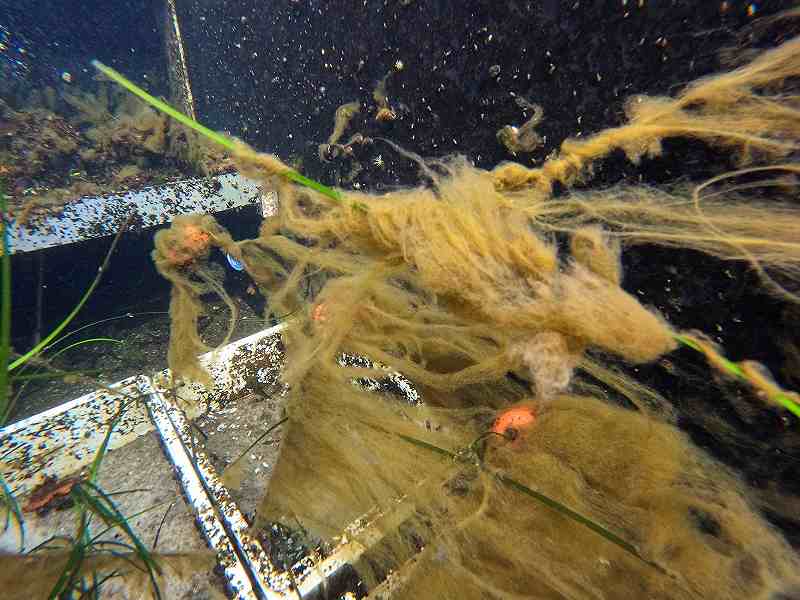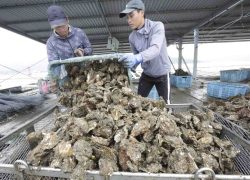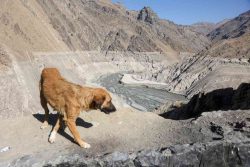
An underwater view of seagrass in a tank at Geomar Helmholtz Centre for Ocean Research in Kiel, Germany, on Oct. 26
16:13 JST, December 2, 2022
BERLIN (Reuters) — Scientists in Germany are working on ways to restore seagrass fields in the Baltic Sea, vast natural sinks that store millions of tons of carbon but which are shrinking fast in the face of falling water quality, global warming and disease.
According to the Geomar Helmholtz Centre for Ocean Research in Kiel, the Baltic region contains almost 300 square kilometers of the plant, storing some three to 12 megatons of carbon.
Seagrass stores that carbon “for centuries to millennia,” Angela Stevenson, a postdoctoral researcher at the center, told Reuters. “A big aspect to think about here is to conserve these systems, to make sure that that CO2 does not get reemitted and further add to these emissions.”
In Germany’s Kiel Fjord, Stevenson and her colleagues have planted a test field using seeds and single-shoot transplants from a natural meadow nearby, exploring which cultivation methods might be the most promising to restore seagrass fields.
The team is also testing how the plants can cope with heat by exposing the plants to heatwaves over generations to try to make them more resilient.
“If the temperatures go up to 26 C and above … for months on end, which we might see in the future with climate change, then that could really pose an issue for the whole system. It may entirely die,” said Stevenson.
Europe alone lost one-third of its seagrass areas between the 1860s and 2016, according to one 2019 study.
Seagrass is not a silver bullet for bringing carbon emissions down enough to reach net zero, Stevenson added. Even if Germany were to restore all the areas that have lost seagrass, they would only grab up to 100 tons of carbon dioxide annually — a very small percentage of the German target.
Germany has pledged to reduce its greenhouse gas emissions by more than 50% by 2030 compared with the levels in 1990. The government also aims to turn the country carbon neutral by 2045.
Top Articles in Science & Nature
-

Japan Institute to Use Domestic Commercial Optical Lattice Clock to Set Japan Standard Time
-

iPS Treatments Pass Key Milestone, but Broader Applications Far from Guaranteed
-

Record 700 Startups to Gather at SusHi Tech Tokyo in April; Event Will Center on Themes Like Artificial Intelligence and Robotics
-

iPS Cell Products for Parkinson’s, Heart Disease OK’d for Commercialization by Japan Health Ministry Panel
-

Japan to Ban Use of Power Banks on Airplanes
JN ACCESS RANKING
-

Japan PM Takaichi’s Cabinet Resigns en Masse
-

Japan Institute to Use Domestic Commercial Optical Lattice Clock to Set Japan Standard Time
-

Israeli Ambassador to Japan Speaks about Japan’s Role in the Reconstruction of Gaza
-

Man Infected with Measles Reportedly Dined at Restaurant in Tokyo Station
-

Videos Plagiarized, Reposted with False Subtitles Claiming ‘Ryukyu Belongs to China’; Anti-China False Information Also Posted in Japan
























